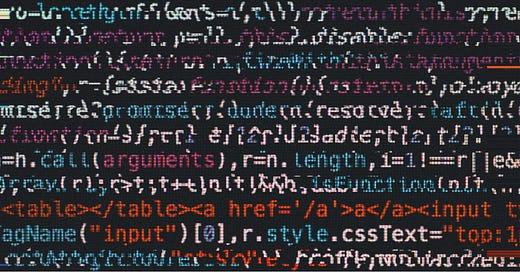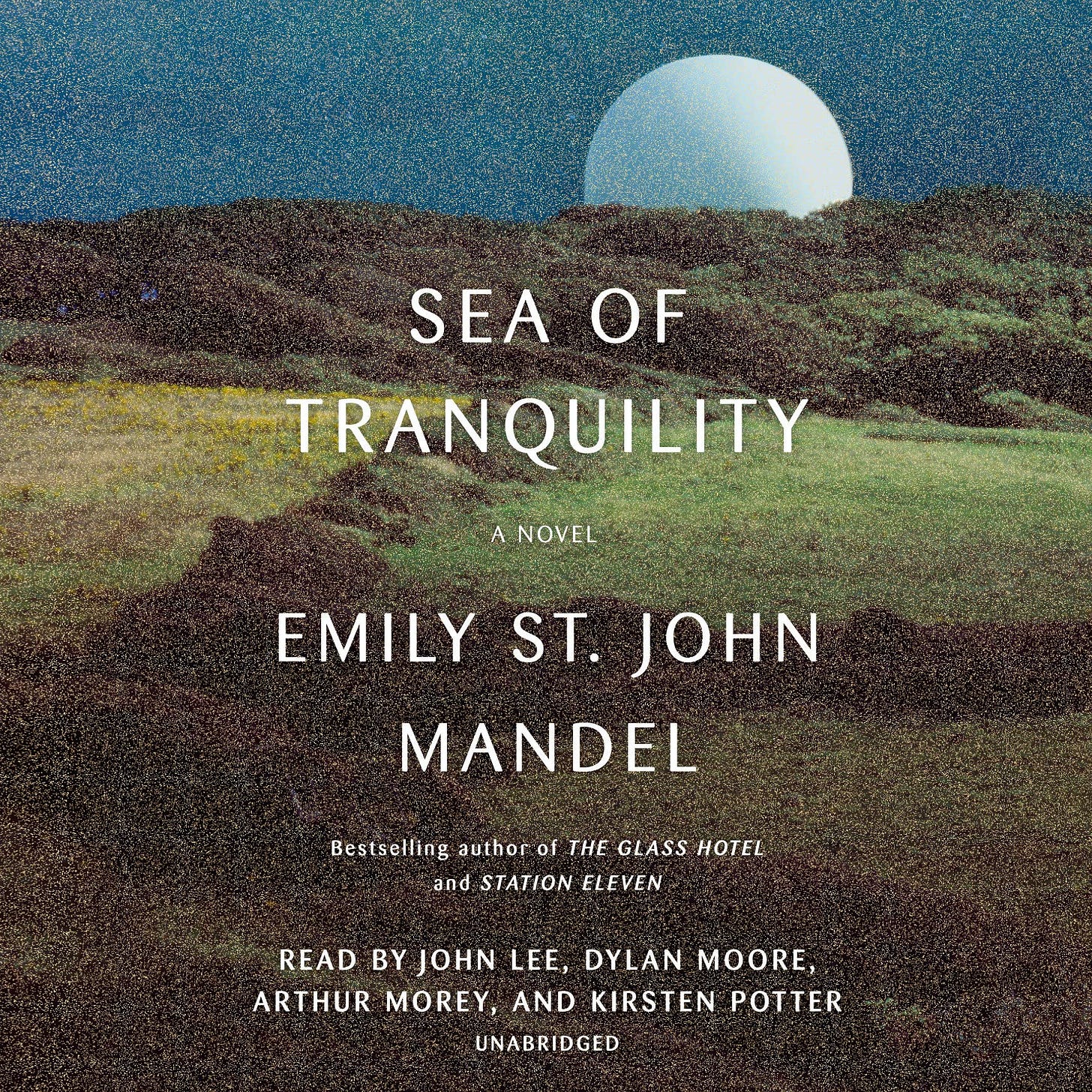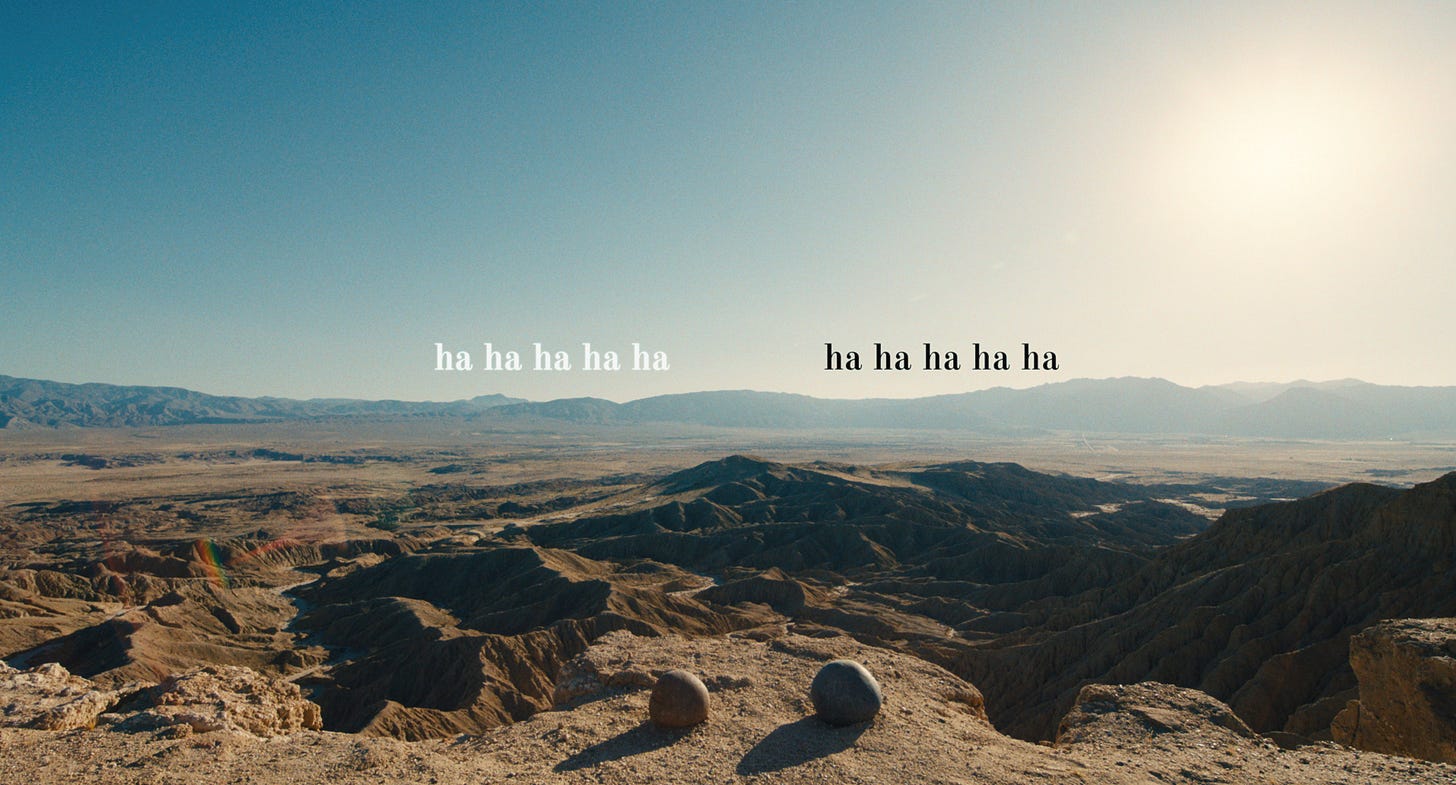So what if we're living in a simulation?
How fiction can help us make sense of this nonsense universe...
There’s a moment towards the end of Emily St. John Mandel’s science fiction novel Sea of Tranquility where a character ponders the purpose of discovering irrefutable evidence that they are existing within a simulation. They conclude that the only appropriate response would be: so what? The question just isn’t important to them. To paraphrase Descartes, they think therefor they are. Why dwell on external forces that are so beyond their control when there is still so much in life that is within our control?
For those who are unaware, simulation theory is the idea that we are living in a reality simulated by an external consciousness. That ours isn’t, in the parlance of the theory, the ‘base-reality’, meaning the actual real world. Chances are, you’ve seen or read something that draws on the ideas inherent to simulation theory. Actual research into the subject has been carried out with scientists coming to a range of conclusions. For example, as noted in an article in Scientific American, astronomer David Kipping of Columbia University found, “the posterior probability that we are living in base reality is almost the same as the posterior probability that we are a simulation—with the odds tilting in favor of base reality by just a smidgen.” Basically, it could go either way.
Kipping’s conclusion was achieved using Bayesian reasoning, a form of analysis Scientific American describes as allowing “one to calculate the odds of something happening (called the “posterior” probability) by first making assumptions about the thing being analyzed (assigning it a “prior” probability).” The key word here being ‘assumptions’. Kipping himself noted in the article, “It’s arguably not testable as to whether we live in a simulation or not.” He concluded that, “if it’s not falsifiable, then how can you claim it’s really science?” So, why are so many simulation theory stories focused on the why?
Such stories are often centered on the technology that facilitates the simulation. The Matrix1, for example, is about escaping the simulation and bringing down the machines that created it. The focus here is on human struggle against the simulation and it’s creators or, as philosopher Nick Bostrom put it in his seminal essay ‘Are you living in a computer simulation?’2, the “posthuman civilisation.” The problem with this focus on the “posthuman civilization” is that it’s just a continuation of the same question we’ve been grappling with for thousands of years: why are we here?
What Mandel’s book so beautifully articulates is that purpose isn’t the point. Looking beyond the simulation is kind of irreverent if we’re not in a position to understand it’s complexities so why not just focus on what we can control. One character in Mandel’s novel ponders the nature of their reality, saying, “this, I found myself thinking in the years that followed, on nights when my wife and I played the violin together, when we cooked together, when we walked in our fields watching the movements of the farm robots, when we sat on the porch watching the airships rise up like fireflies on the horizon over Oklahoma City, this is what the Time Institute never understood: if definitive proof emerges that we're living in a simulation, the correct response to that news will be: So what.”
Does the ‘true’ nature of reality invalidate the music they played, the meals they cooked together, the airships they watched over the city? Did the observation of the planets beyond our own invalidate our own existences despite leading to a fundamental shift in our perception of reality? Of course it didn’t. The world kept on spinning, people kept on loving, feeling, creating and working for thousands of years. It’s interesting to consider the forces beyond our comprehension but it’s also a trap. That we become so focused on things beyond our control we forget to tend to the things we can.
There’s a scene in Everything Everywhere All At Once, you know the one, where Evelyn and Jubu Tupaki3 are in a universe where humanity never evolved. They take the form of rocks with googly eyes as they discuss the point of everything. They conclude that every new discovery is just a reminder that, “we’re all small and stupid.” Sea of Tranquility is advocating for the freedom you experience when you let go of the why and just focus on the now. Life isn’t meaningful because of some grand cosmic purpose that’s beyond human comprehension. It’s meaningful because of the small things we do everyday. It doesn’t matter that nothing makes sense and that somethings will forever exist outside our control because, after all, we’re still alive, still thinking. We think therefore we are. So, if you’re having a bit of an existential crisis, just remember, even though we’re all small and stupid, “a life lived in a simulation is still a life.”
Obviously, The Matrix is a masterpiece. It’s full of easter eggs for those interested in simulation theory. I particularly loved the early reference to the Jean Baudrillard book Simulacra and Simulation. That and all the kung fu. Okay, mainly the kung fu.
What’s interesting about Bostrom’s take is that he seems more interested in the technology that facilitates the simulation. The processing power needed, the kind of machines required to hold the simulation. Safe to say, he thinks we’d need a pretty fancy computer. Read his essay here.
The screening of EEAAO I saw earlier in 2022 was accompanied by a Q&A with the Daniels. Someone asked them where the name Jobu Topaki came from and, as Daniel Kwan noted, it’s basically just a made up, meaningless phrase that sounds interesting. I might be misremembering here but I feel like it may have been inspired by one of the directors children as well which seems even more fitting for this film.








Nice essay! Thanks for sharing your thoughts. I need to learn more about this topic and I still want to read Sea of Tranquility. I like your conclusion: if we're living in a simulation, so what? Our actions and choices every day still have real, meaningful consequences for ourselves and everyone around us. I guess that statement goes against EEAAO's assertion that "nothing matters," but my beliefs land more on the optimistic side that *everything* matters, (even if nothing matters,) so let's do our best with what we have.
Love this. YOLO, am I right?! Great essay and concise explanation of simulation theory 👏